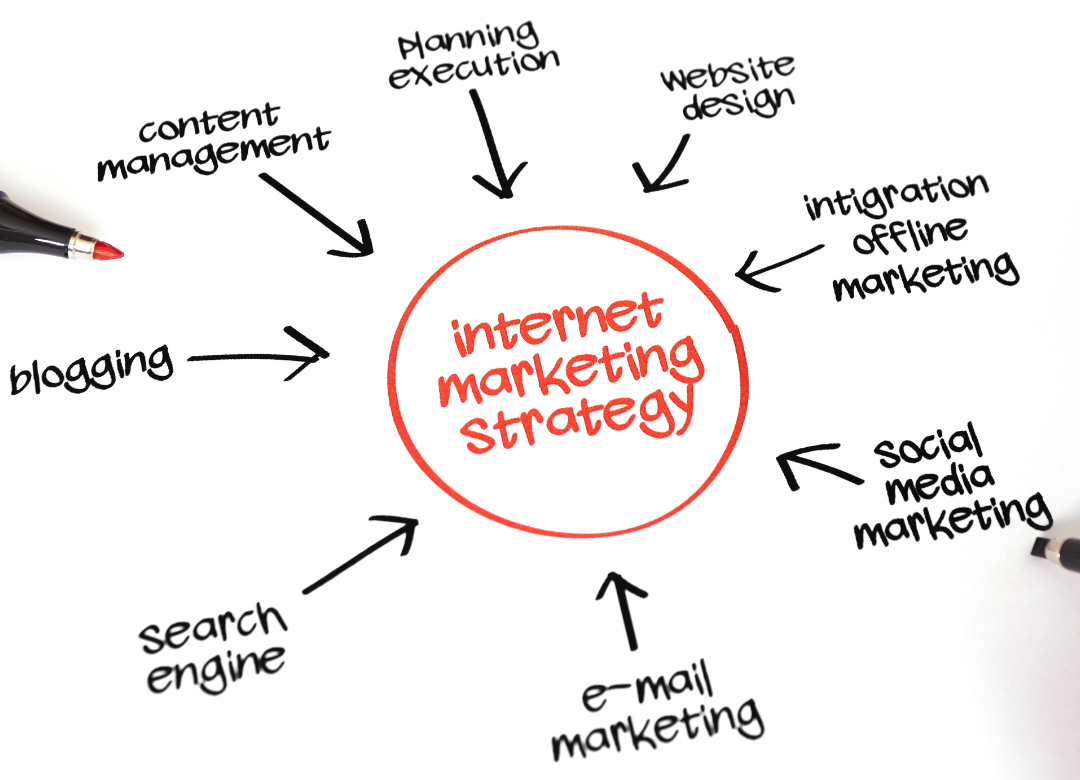Affiliate Marketing 101 - What You Need to Know Before Diving in for Profits
Affiliate marketing is an essential component of digital marketing that business owners need to be well-versed in if they want to succeed online. It's a powerful way to generate income by promoting other people's products or services. Still, for many entrepreneurs, affiliate marketing can be confusing or even intimidating. If you're not sure what affiliate marketing is, or you want to learn more about how it can help grow your business, this post is for you!
Affiliate marketing is a type of performance-based marketing in which an affiliate earns a commission by promoting another company's product or service. As a business owner, you can become an affiliate marketer by signing up for affiliate programs, which are offered by many companies across different industries. You'll receive a unique affiliate link, which you can then promote through various channels, such as social media, email marketing, or your blog.
One of the advantages of affiliate marketing is that it can be a win-win situation for both the affiliate marketer and the company offering the product or service. The affiliate marketer earns a commission by promoting the product or service, while the company can expand its reach and generate new leads and customers. It's a mutually beneficial relationship that can drive growth and revenue.

To be successful in affiliate marketing, you need to choose the right products or services to promote. Ideally, you should select products that align with your niche or audience and that you genuinely believe in. Your audience can tell when you're promoting something just for the sake of earning a commission. When you promote products that you genuinely stand behind and that are a good fit for your audience, you'll build trust and credibility, which can lead to higher conversions and earnings.
Another key to success in affiliate marketing is to provide value to your audience. Instead of bombarding your followers with promotional content, try to offer relevant and helpful content that provides a solution or addresses a pain point. You can create blog posts, social media posts, videos, or even webinars that offer valuable information related to the products or services you're promoting. By creating content that your audience finds valuable, you'll build trust and establish yourself as an authority in your niche.
Finally, track your performance regularly and test different strategies to see what works best for you. Most affiliate programs provide performance metrics that allow you to track clicks, conversions, and earnings. By analyzing this data, you can identify which channels are driving the most traffic and conversions, what type of content resonates with your audience, and what products or services are most popular. You can use this information to optimize your strategies and improve your earnings over time.
Affiliate marketing is a lucrative business model that has been revolutionizing the way marketers earn money online. With various paths to earning revenue, you have the flexibility to choose what works best for you. From driving traffic to your affiliate partner’s website to promoting their products via social media channels, the opportunities are endless.
As an affiliate marketer, it’s essential to always be open to new ideas and innovations that align with your brand. Don’t be afraid to test and experiment with different strategies until you find what clicks with your audience.
The key to success in affiliate marketing is to remain adaptable and continuously evolve with the trends. With hard work and dedication, you can make a substantial income through this exciting field.

Here are seven forms of affiliate marketing to consider for your small business:
1. Pay Per Click (PPC)
PPC is a popular form of affiliate marketing where businesses pay affiliates every time a user clicks on their ad. This can be an effective way to drive traffic to your website and increase sales, as you only pay when someone actually clicks on your ad.
2. Cost Per Action (CPA)
CPA is another common type of affiliate marketing where businesses pay affiliates for specific actions, such as filling out a form or making a purchase. This can be a more cost-effective option for small businesses, as you only pay when the desired action is completed.
3. Email Marketing
Email marketing is a great way for small businesses to reach potential customers through affiliate partnerships. By working with email list owners, businesses can promote their products or services to a targeted audience and potentially see an increase in sales.
4. Influencer Marketing
Influencer marketing has become increasingly popular in recent years, with businesses partnering with social media influencers to promote their products or services. This type of affiliate marketing can be especially effective for small businesses looking to target specific demographics.

5. Content Marketing
Content marketing involves creating valuable and informative content that promotes your business indirectly through affiliate partnerships. This can include guest blogging, sponsored content, and product reviews by affiliates.
6. Coupon/Deal Sites
Coupon and deal sites are another popular form of affiliate marketing for small businesses. By offering exclusive discounts or deals through these sites, businesses can attract new customers and increase sales while also providing value to the affiliate partners.
7. Comparison/Review Sites
Comparison and review sites allow customers to compare products or services from different companies before making a purchase decision. By partnering with these sites, small businesses can gain exposure and potentially see an increase in sales from customers who trust the recommendations of these sites.
In the ever-changing world of digital marketing, affiliate marketing continues to offer a lucrative opportunity for businesses of all sizes. From product reviews and sponsored posts to email campaigns and social media marketing, the possibilities are almost endless.
However, it is important to remember that while there are many options available, not all methods will work for every business. The key is to identify a strategy that aligns with your brand values, target audience, and budget. By doing so, you can capitalize on the power of affiliate marketing to drive sales, increase brand visibility, and ultimately achieve your business goals.

The bottom line is that affiliate marketing is a powerful way to generate income online, but it requires effort, strategy, and a focus on providing value to your audience. By choosing the right products, creating valuable content, and monitoring your performance, you can build a successful affiliate marketing business that generates income and drives growth for your company. With so many affiliate programs available, there's sure to be an opportunity that aligns with your niche and audience. So, what are you waiting for? Start exploring affiliate marketing and grow your business today!
If you're a business owner looking to increase your profits, you're certainly not alone. It's a common goal among entrepreneurs and one that can be achieved with the right tools and strategies in place. That's where the 5-Step Roadmap to a Profitable Biz comes in.
This valuable resource is designed to guide you through the essential steps needed to boost your business's bottom line, from identifying your ideal customer to creating a solid marketing plan to scaling your operations for growth.
And the best part? It's completely free to download.
So why not take advantage of this valuable resource and start building a more profitable business today? Grab your copy here!


